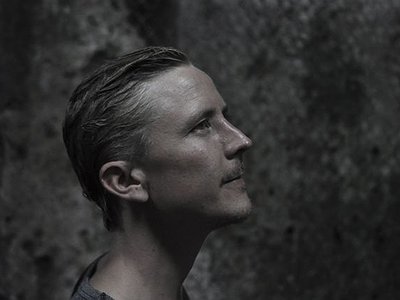When did you start writing/producing music - and what or who were your early passions and influences?
I started at the age of 5 with classical percussion and drums, jazz later on, death metal in between. I switched from sticks to electronic equipment and music production at about the age of 20, in '96, and released my first productions in '97.
My early influences are all over the place. Frank Zappa was very huge on me, Miles Davis and many drummers that played with him, lots of other jazz stuff. Metal was a big influence on me, Carcass, Napalm Death, all that Earache stuff for example.
What do you personally consider to be the incisive moments in your artistic work and/or career?
They must still be coming.
What are currently your main compositional- and production-challenges?
To cross from the ambient/experimental stuff I do into somewhere else, to play more with rhythms and beats while not trying to jump onto any bandwagon or trendy thing.
Overall, the same challenge has been there for me since the day one; to create something new and not to repeat myself too much.
What do you usually start with when working on a new piece?
It's a principle already, I try to start every time differently. I also dislike routines and anything that creates laziness and comfortable situations. It just kills creativity and personality and fills the planet with even more generic sounding something.
How strictly do you separate improvising and composing?
I really don't care at all. I don't think or analyse that much anyway; I think it's a waste of time while you could be actually making music. Then again, I do spend a lot of time thinking about music but very different stuff.
But I improvise and I compose, maybe improvise more than compose. But to answer the question, I don't separate them at all, whatever works.
How do you see the relationship between sound, space and composition?
I see millions of possibilities there.
Do you feel it important that an audience is able to deduct the processes and ideas behind a work purely on the basis of the music? If so, how do you make them transparent?
Quite the contrary. I don't think it should play so big a role in how music is being made.
I’m quite egoistic when it comes to music and I actually don't think much at all about the audience when I make my own music. This is personal music and I do it purely for private reasons.
I think the audience, like myself, shouldn't think too much about the processes and so on, if it works it works and if it doesn't, I don't think it will get much better even with lots of thinking.
You might understand the principles and ideas behind it of course and the music might open up to you but it's the same music for me, I’m very pragmatic when it comes to art and music.
I want experience itself to be the thing, not the explanation of it, or the instruction of how I should understand it.
In how much, do you feel, are creative decisions shaped by cultural differences - and in how much, vice versa, is the perception of sound influenced by cultural differences?
I think creative decisions are most often made based on practical or commercial reasons, not shaped by cultural differences. But I think the perception of sound is influenced quite a lot by cultural differences, even today.
Interviews / About
Fifteen Questions with Vladislav Delay
A quest for sound
Getting uncomfortable
Finnish electronic musician and record producer Sasu Ripatti is on a quest. Having adopted many pseudonyms, including Vladislav Delay, Luomo, Sistol or Conoco, Ripatti, originally a drummer, has played with an abundance of musicians and has been released on a number of labels from Raster-Noton to Sigma Editions. With so much change and movement in a career spanning over a decade, it's clear that Ripatti is committed to his quest. His mission is to make music that has never been heard before, to dream up rhythms and sounds, timbres and tones that surprise and intrigue, stir and tranquilise. By dodging stereotypes and living as a creative nomad, Ripatti has tried to avoid being described as an artist because he doesn't see himself that way. He's the hero on a quest, and the quest is music.

I also dislike routines and anything that creates laziness and comfortable situations.


